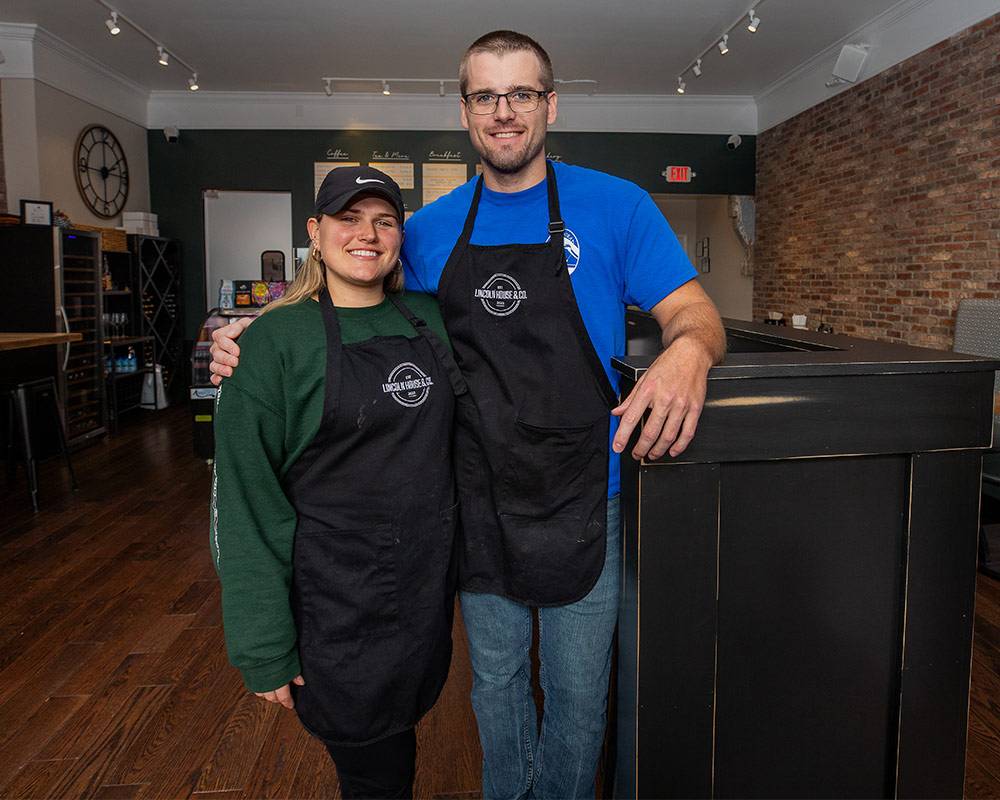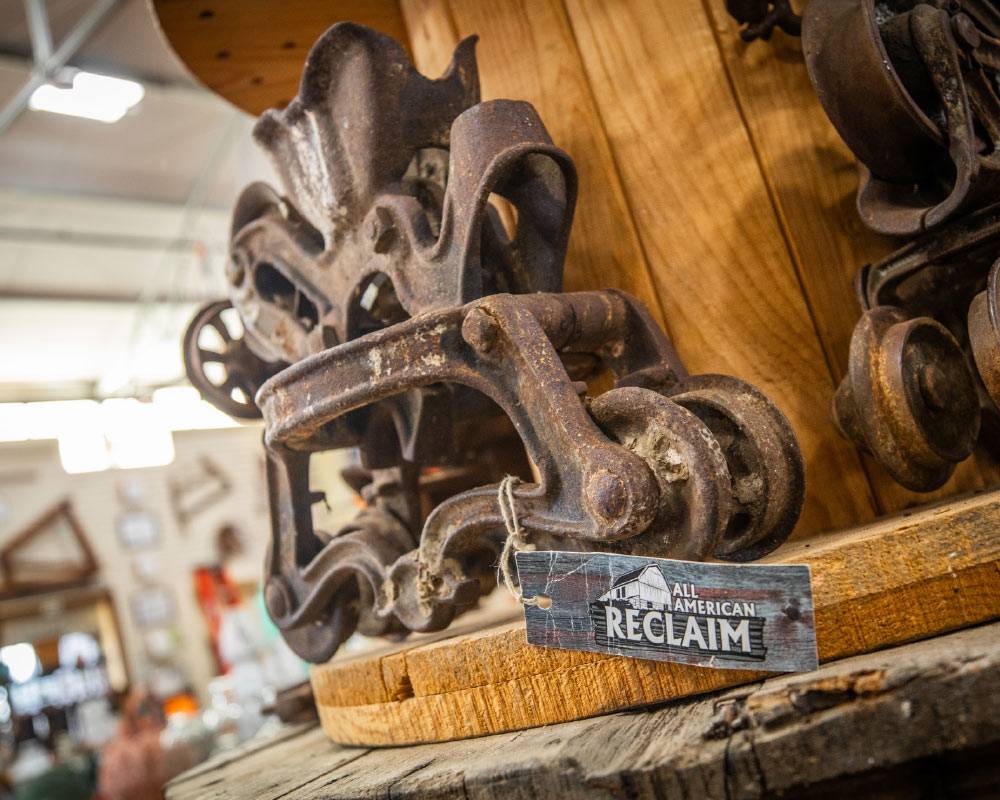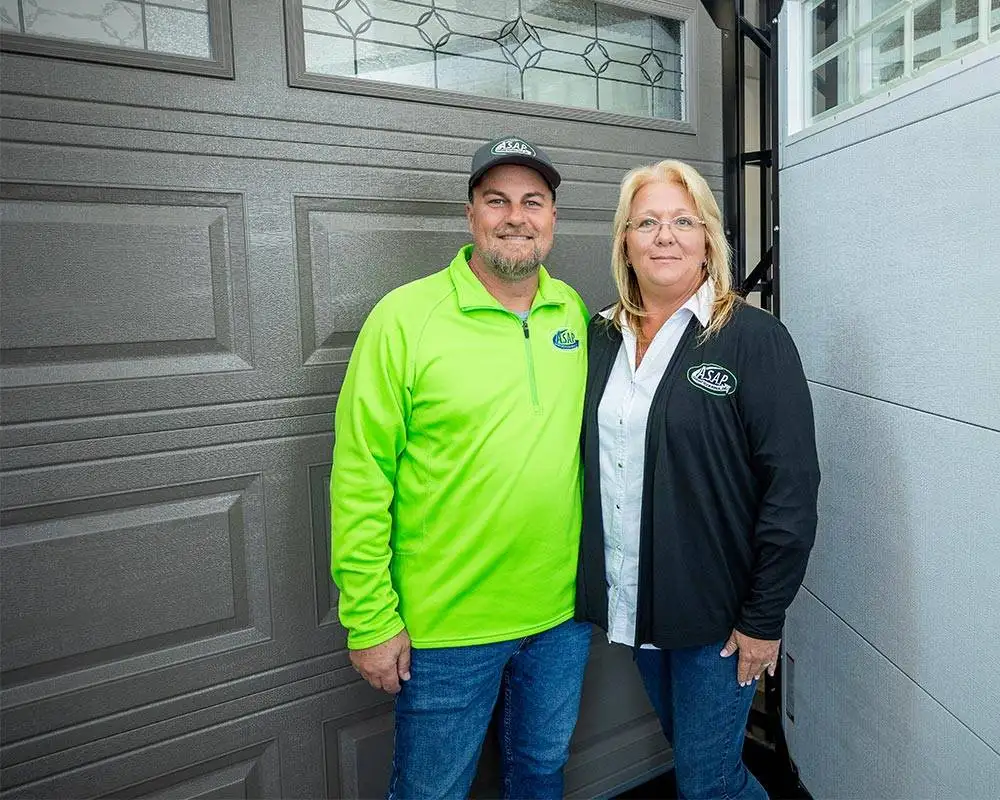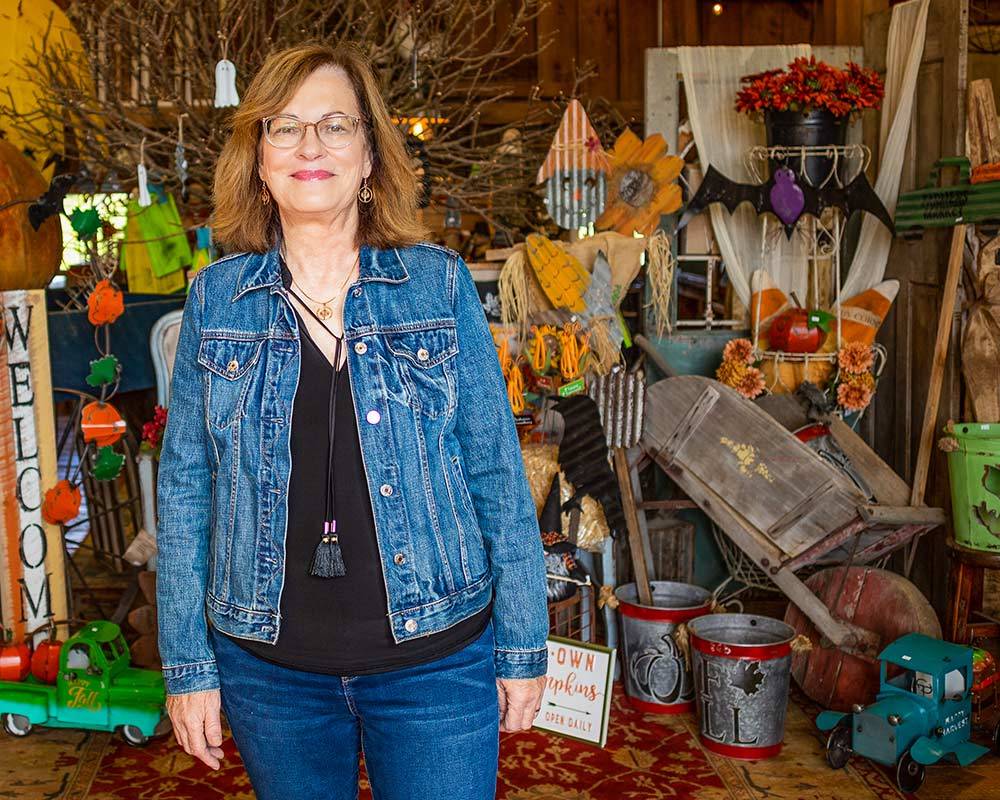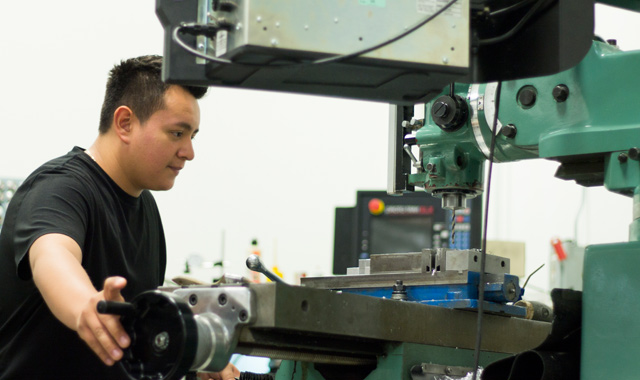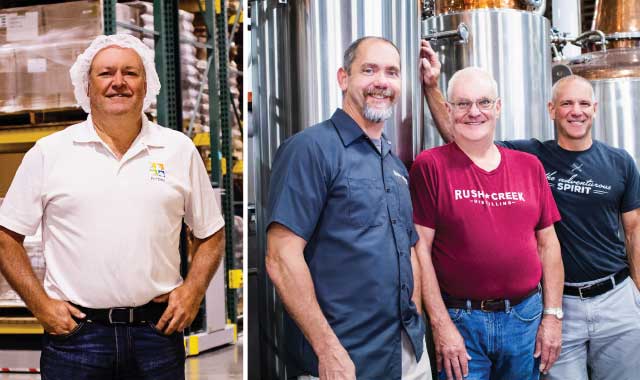What if college wasn’t the only post-high school path for our students? That’s what a dedicated group of business, city and education leaders are asking, as they pull back the curtain on manufacturing.

Editor’s Note: This story is a follow-up on a group we first wrote about in 2010, when it was just beginning to connect high schoolers with high-tech manufacturing career preparation.
Ryan Kissane has never wavered in his dream of becoming an engineer, which means he’ll someday work with manufacturers.
“I got into engineering when I was in grade school, because my teacher always told me I was really good at math and science,” says the Palatine High School senior. “I started learning about engineering and I thought, ‘Oh, this is really cool stuff.’”
Kissane recently finished his second summer internship at Felsomat, 1700 Penny Lane, Schaumburg, a company that designs, assembles and programs automated production systems. Working alongside the assembly, electrical and engineering crews gives him a strong head start over his peers. He’s also gained a newfound appreciation for high-tech manufacturing, which is nothing like the experience of his grandparents’ generation.
“You hear about the assembly lines and how they’re all dirty and grungy, but then you come here, and it’s all white,” he says. “It’s not what I expected – it’s better than I expected.”
That perception of the dark, dirty factory is a world apart from the high-tech manufacturers located on Interstate 90 around Hoffman Estates and Schaumburg. Along this “Golden Corridor,” companies like Mazak, DMG Mori, Sandvik Coromant and Fanuc are supplying the tools for a new generation of manufacturing. But they can’t continue their high-tech, computer-driven work without skilled talent, which is, surprisingly, in short supply.
Actually, about 5 percent of American manufacturing jobs go unfilled because qualified workers can’t be found, according to a 2011 study by Deloitte Consulting and the Manufacturing Institute. Around the country, at least 67 percent of manufacturers experience a moderate to severe talent shortage.
That’s why leaders in education, business and government around the Golden Corridor are pulling discussion about manufacturing careers out of the shadows. Since it started five years ago, this Golden Corridor Advanced Manufacturing Partnership (GCAMP) has made real progress.
“We have a number of companies, like Sandvik Coromant, that bend over backwards to open their doors and help parents, students, Boy Scouts, Girl Scouts, to go through tours and learn more about what manufacturing is,” says Gary Skoog, GCAMP president. “And we want to get the word out that manufacturers offer occupations in other areas, such as technology, sales, HR and logistics.”
The public schools are also stepping up. Across northwest Cook County, GCAMP has assisted partner school districts in enhancing their manufacturing classes and deepening their career inventories. This summer, the group placed 25 high school and college interns with local manufacturers.
Skoog, a former college career counselor, recognizes this fact of life: Not every kid is cut out for college.
“Mostly, the students that grow up in this area are bombarded with the message ‘you’re going to college, you’re going to college,’ and nobody’s thinking about what the students want to do for a living, or what they want to get out of college, besides partying,” he says.
Given the growing cost of higher education, manufacturing careers offer an alternative, well-paying career path. Unlike a few generations ago, these high-tech jobs provide many starting points for a fuller career.
Ultimately, Skoog wants GCAMP to create a sustainable channel of local talent for area manufacturers. “Without new feeder pipes like us, the employee pipeline is going to dry out,” he says. “The average age of manufacturing workers is about 55. What happens in 10 years? If they don’t have that workforce, the toolmakers aren’t going to sell machines, and manufacturing is going to go overseas again.”
This “skills gap” is a very real problem for Dick Gilchrist, chairman of Felsomat in Schaumburg, a GCAMP member. Like his neighbors, Gilchrist struggles to find qualified talent. So he’s building his own. Gilchrist hosts summer interns, and hopes to someday host apprentices, too. He says he’s happy to help qualified youngsters to learn the trade, and, if they’re dedicated, he’ll help them through school, too. After all, that’s how it works in his native Scotland.
“When there’s a real shortage of skilled, highly trained labor, usually it becomes a throttle to your business,” says Gilchrist. “What you end up doing is stealing employees from your competitors, and then they steal yours, and all you do is keep pushing up costs.”
Felsomat employee Christian Reyes, a recent graduate of Palatine High School, was machining steel his first week on the job. He starts this fall at Harper College, in its manufacturing program, and when he’s not in class, he’ll be working at Felsomat.
“I started the manufacturing program in high school, and I never knew about this before then,” he says. “I started my senior year, and it caught my interest right away. I saw that it was one of the fastest-growing industries, so it caught my eye.”
Across the street is Sandvik Coromant, where GCAMP director Kevin Clay points out several computer-controlled machines that are produced by his fellow GCAMP members. His company’s carbide-blade cutting tools work inside these machines, and at this productivity center, they’re used for research, development and product demonstrations. Customers and other manufacturers often visit for hands-on lessons.
This summer, Sandvik Coromant intern Viral Rokadia, of Schaumburg, learned all about computer-controlled equipment, as he explored his interest in mechanical engineering. “One of my colleagues said that it’s like learning a whole new language, and it really was,” says Rokadia, a student at Illinois Institute of Technology, in Chicago. “I learned so many things here.”
Partnerships have been key to GCAMP, which is working to think regionally. Skoog, who recently retired after 12 years as director of economic development for Hoffman Estates, acknowledges that it’s been a big mindshift for member municipalities Schaumburg, Hoffman Estates and Elk Grove Village.
“We understand that retail is very competitive, and we can’t necessarily work together on that, but we can work together on manufacturing and training someone for the field,” he says. “If someone moves to Schaumburg and hires 300 workers, some of them are going to buy a house in Hoffman Estates, and they’re going to buy their gas, do their shopping, eat at restaurants in all three communities. It raises the whole economy when you have more people working in good-paying jobs.”
Naomi CarmeliShabtay, a senior at Wheeling High School, hopes to someday secure a well-paying job as a robotics engineer. Not only are her parents engineers, but she estimates she spent nearly 350 hours in her school’s robotics lab with the extracurricular robot team last year. Her internship at Felsomat this summer, where she worked hands-on with robotics technology, only solidified her goals.
“I’m still pretty sold on robotics,” she says. “It’s made me see that robotics is definitely an applicable career choice for the future. It’s not just that I’m building robots. It’s that I’m building robots for a purpose.”
Skoog knows there’s still work to be done with GCAMP, but the critical components are in place. The group is now recognized in Illinois as a nonprofit, enabling it to raise funds for future projects. It’s expected to soon receive national nonprofit status.
“It doesn’t happen overnight – it does take a little time,” he says. “We need to create a system that’s building awareness, where alumni come back and say, ‘This was a great decision, and I’m not saddled with debt. I have a good job, I have a car, I have a family and I’m paying a mortgage.’”













